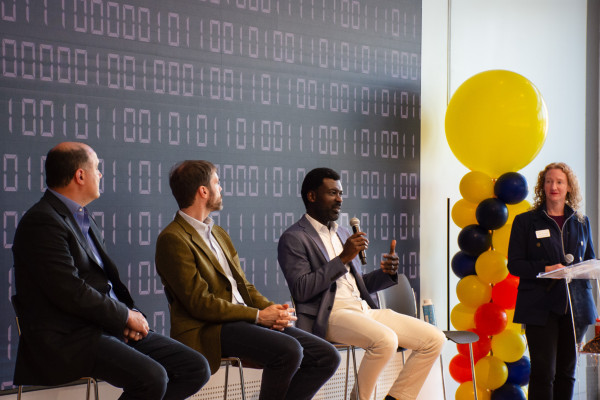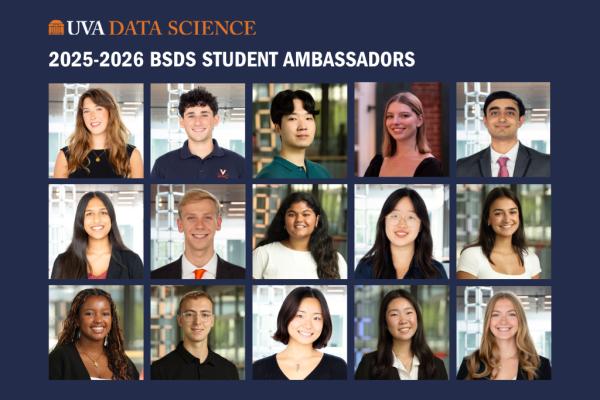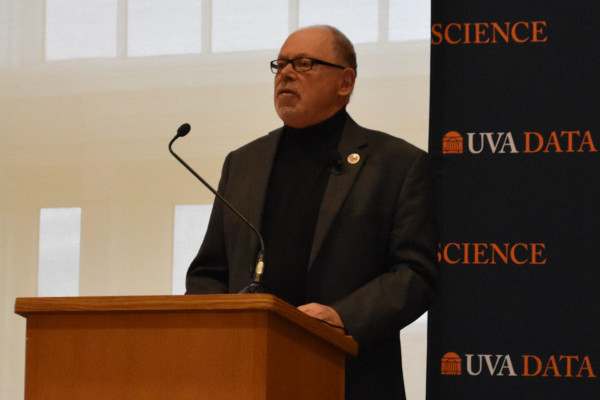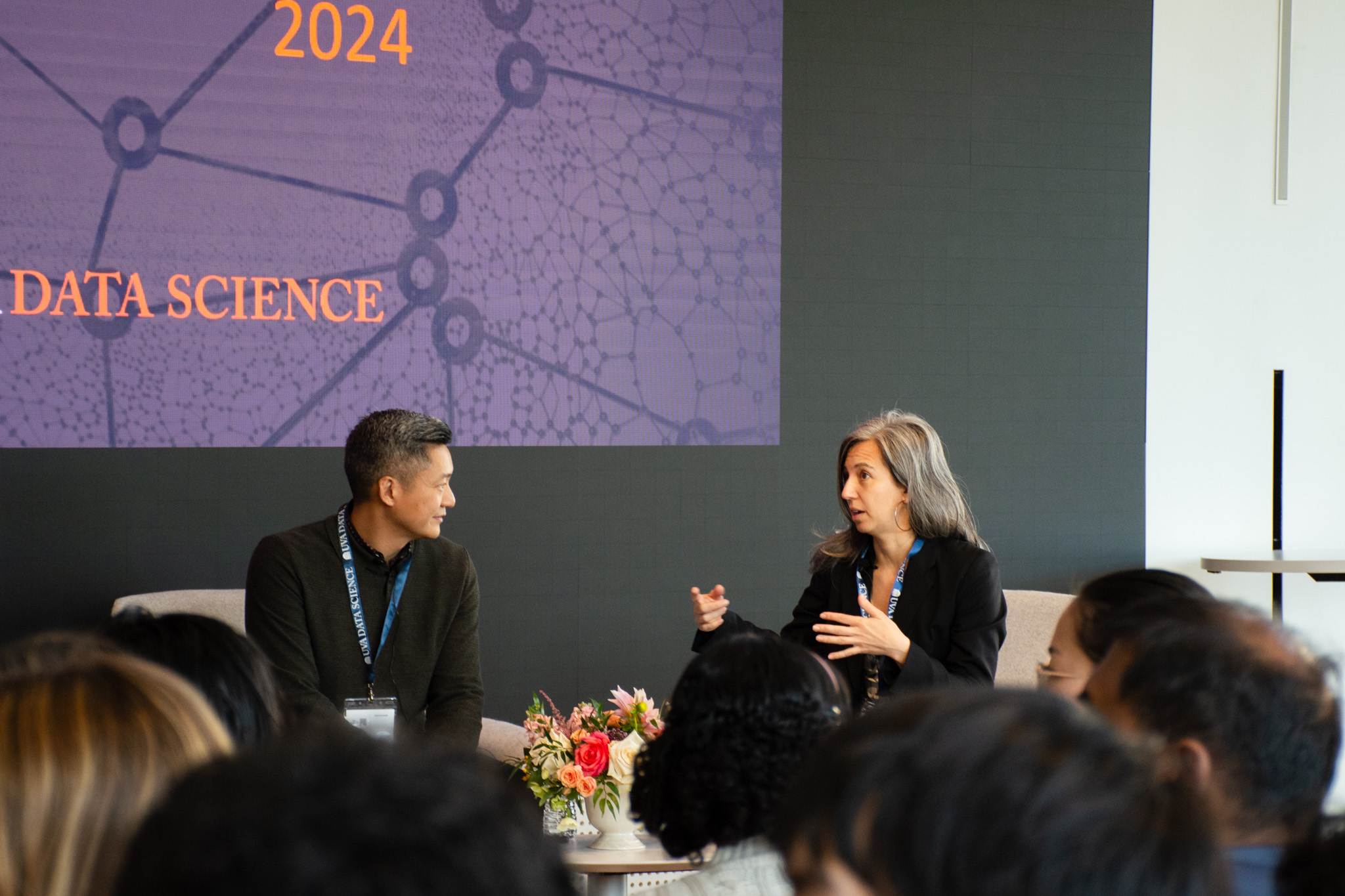
Key Takeaways from Datapalooza 2024
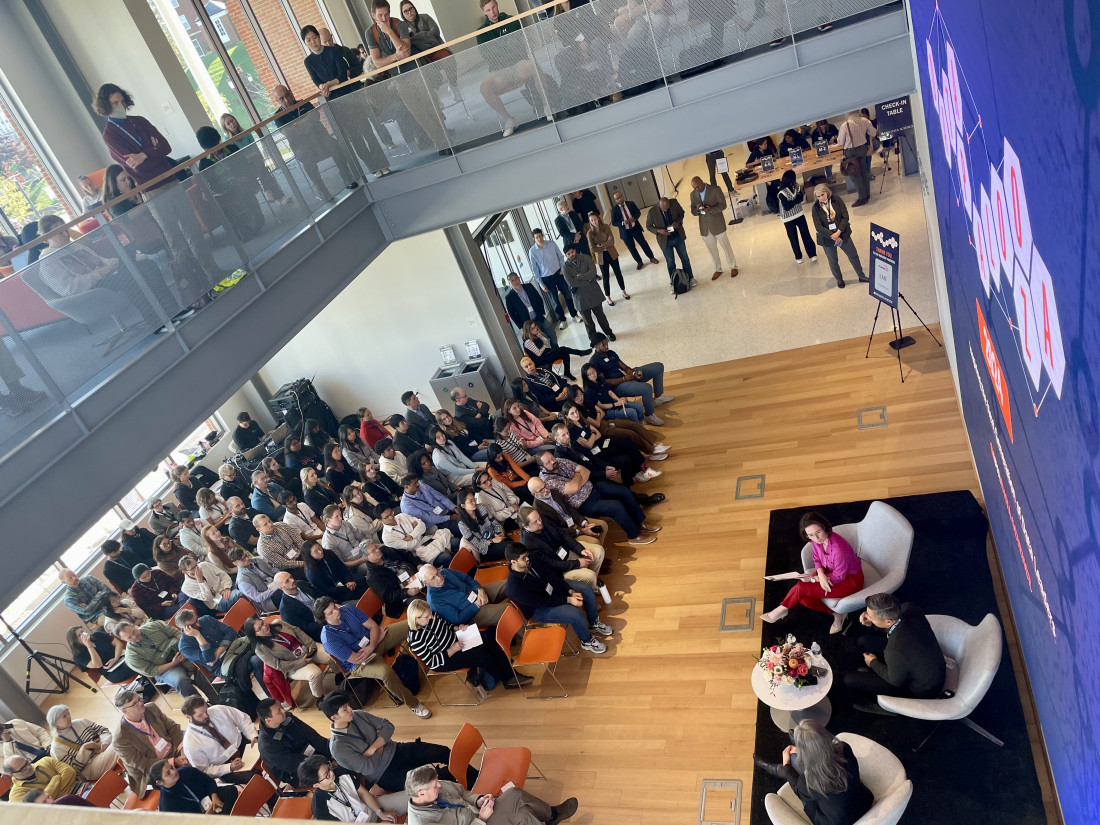
As the field of data science, both as a career and education, sees a booming exponential growth, Datapalooza 2024 attempts to make sense of a rapidly growing industry and illuminate a path to success for young data scientists. This year's theme, "Inspiring the Next Generation of Data Leaders," was chosen as a means of engaging the University community, specifically aspiring data scientists.
Datapalooza 2024 marked many milestones for the School of Data Science. This was the School’s tenth year holding Datapalooza as its annual flagship event. This fall marked the first time the School was able to hold Datapalooza in its new home, the recently completed Data Science building, and the first event when the School offered a complete suite of degrees: B.S. in Data Science, M.S. in Data Science Online or Residential, and a Ph.D. in Data Science.
Both the upper and lower floors of the Capitol One Hub were full and bustling with excitement when Associate Dean for Academic and Faculty Affairs Jeffery Blume extended a warm welcome to the more than 200 in-person guests and nearly 100 virtual attendees.
He highlighted these milestones and more in his address, reiterating the School's mission to “foster collaboration in data science research and education.” He shared, “The theme we're exploring today is the commitment to fostering good data citizens and leaders.”
This fall, the School welcomed its first cohort of 75 second-years majoring in data science. In 2022, the Ph.D. in Data Science was launched to complement the existing M.S. in Data Science (MSDS) offered in two formats, online and residential. Launched in 2019, the School of Data Science was the first of its kind in the nation and continues to grow. Today, it is home to nearly 350 students and has more than 850 alumni from across its programs.
Prince Afriyie, Associate Professor of Data Science and MSDS Residential Program Director, commented on the significance of this year's student-centered approach. “All the students liked the sessions and they all learned something," he said. "This is the spirit of Datapalooza."
Here are the key takeaways from Datapalooza 2024:
Artificial Intelligence is a growing technology that is becoming integral within data science careers and education
The School of Data Science aimed to inspire the next generation with a series of talks focused on new challenges in the field of data science. The keynote conversation: “Data, Business, and The Real World: Insiders on How AI Became A Thing” was moderated by Assistant Professor of Data Science and Media Studies Mona Sloane and featured guest speakers Miriam Friedel, Vice President of Machine Learning Engineering at Capital One, and Don Vu (Commerce '98), Chief Data and Analytics Officer at New York Life.
The speakers, both from a non-data science background, shared their journey to data science, gave industry insights, and discussed how AI has grown in their respective industries.
Both Vu and Friedel began their careers before data science or even AI “was a thing,” but they both now lead data science and machine learning divisions with their respective companies. Friedel commented that as data sets became bigger, more complex and nuanced synthesization of data became critical.
Vu, a graduate of the McIntire School of Commerce pursued a career in data and analytics across industries before landing at New York Life. Friedel, who has a doctorate in physics, now leads teams of data scientists at Capital One. The speakers underscored the necessity of seeking out knowledge and being flexible when facing technological advancements.
“You need to be a ferocious lifelong learner,” Vu said, in keeping with UVA founder Thomas Jefferson's principles. They also emphasize the collaborative aspect of data science. “No one person is going to know everything,” Friedel remarked. “Data science is a team sport.”

As AI and Large Language Models become more common, ethical data science is a primary concern
After the keynote, Datapalooza held five breakout sessions covering various applications of data science, including two workshops where attendees could learn new skills. Other sessions included data science solutions for social justice, effective data communication in sports, and a government AI procurement index.
An underlying theme of the breakout sessions was an emphasis on responsible data science, especially when using and creating AI and LLGs. In one session, Roya Pakzad, a Data & Democracy Practitioner Fellow at UVA’s Karsh Institute of Democracy and School of Data Science, discussed her work on the “U.S. Federal Agencies Responsible AI Procurement Index.”
Pakzad discovered that around two percent of government defense expenditures was spent on AI, which prompted her to examine the ethicality and transparency of AI procurement. In creating her index, she found that most agencies do have ethical requirements when considering AI, but that the public needs more transparency on the issue overall.
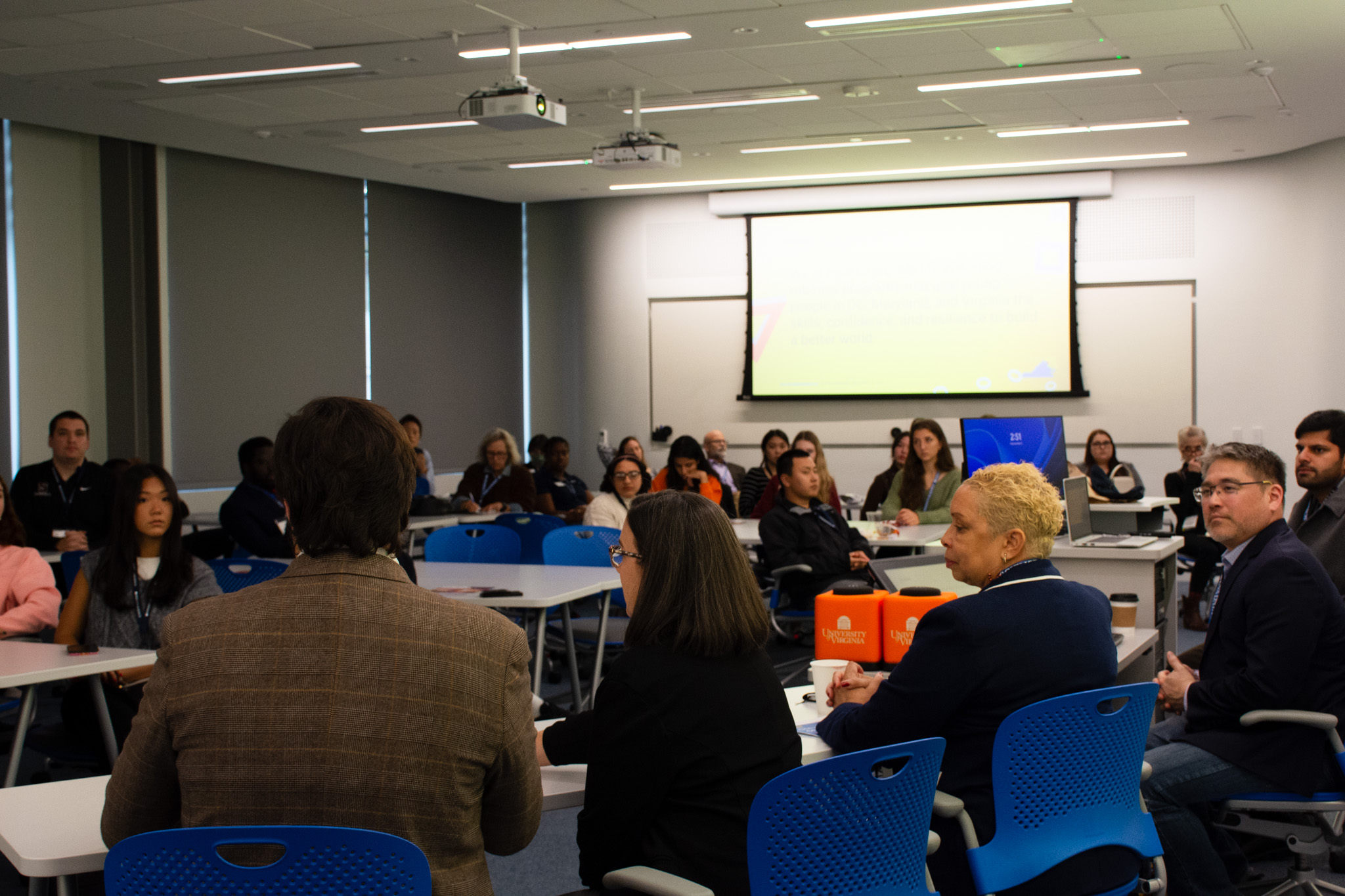
In another, Brant Horio from LMI, a School of Data Science industry partner, kicked off their Data Entrepreneurship Challenge whose theme this year focuses on "Advancing Progress toward Social Justice Solutions." He brought in a panel of experts from the federal government and local nonprofit organizations who discussed the social justice challenges they face in their respective fields, sharing ideas on potential digital solutions that could drive positive change.
One of the featured speakers Jeremy Alcorn, Deputy Assistant Commission for Facilities Management (Programs) in the Public Buildings Service in the U.S. General Services Administration, challenged the session attendees to think how data science might play a transformative role in addressing challenges related to federal facilities and housing. Other speakers included Kim Barnette, an LMI fellow and board member of DC Action, as well as Alex Bryant and Shelly Stoddard from FIRST Chesapeake, a nonprofit dedicated to fostering youth STEM skills through hands-on robotics competitions and mentorship programs.
Soft skills are essential
Nearly every speaker at Datapalooza emphasized the importance of communication as a necessary soft skill for data scientists. Speakers discussed the importance of being able to articulate complex ideas to those with no data science experience. The event itself embodied the importance of effective communication skills, as data scientists from industry and research described their work, discussed the future of the field, and answered audience questions.
After the breakout sessions, guests returned to the Capital One Hub for an industry panel on “Pathways to Data Science: Charting Your Course in a Data-Driven World.” Moderated by Associate Professor of Data Science Adam Tashman, the panel included data scientists from diverse backgrounds and in different stages of their careers.
They included first-year Ph.D. in Data Science student Madelyn Mathai, Vice President of Data Science AI Enablement at 84.51˚ Lyndsey Padden (A&S '11, Commerce '12), Data Scientist at C3.ai Ana Sharma, and Lead Scientist at Sentara Health and School of Data Science Lecturer Christian Wernz.
With such differing perspectives, the panel was unanimous on one issue: soft skills are essential. “Execution beats brilliance every time,” Padden said. “It’s the intersectionality of both skills, learning agility, and the ability to show that you can transfer skill. You constantly learn and relearn new technical applications”
Mathai agreed, stating that “soft skills inform hard skills.” Wernz added that presentation especially can become the most important tool in a data scientist's toolkit. “Tech skills get you the job, but soft skills get you the career,” he said.
Padden also encouraged attendees to view their career path from a lattice point of view rather than a traditional ladder. She stressed that having a range of applicable skills sets will allow for greater career mobility and serve as a competitive edge when opportunities arise.
Data science is a fast-growing industry that is approachable from many different backgrounds and applicable to countless industries
Datapalooza 2024 included speakers from a myriad of backgrounds, and explored data science through varied industrial applications and unique career paths. They spoke of the field's exponential growth and application to nearly every sector, whether technology, government, healthcare, finance or education.
Serita Seright, an MSDS Online student who attended Datapalooza for the first time, shared what the event meant to her. “I enjoyed Datapalooza. It was cool to learn about data science in sports analytics. That was a world I didn’t know existed, so it opened up a lot of ideas.”
Judging by its goal of “Inspiring the Next Generation of Leaders,” Datapalooza 2024 was a resounding success.
